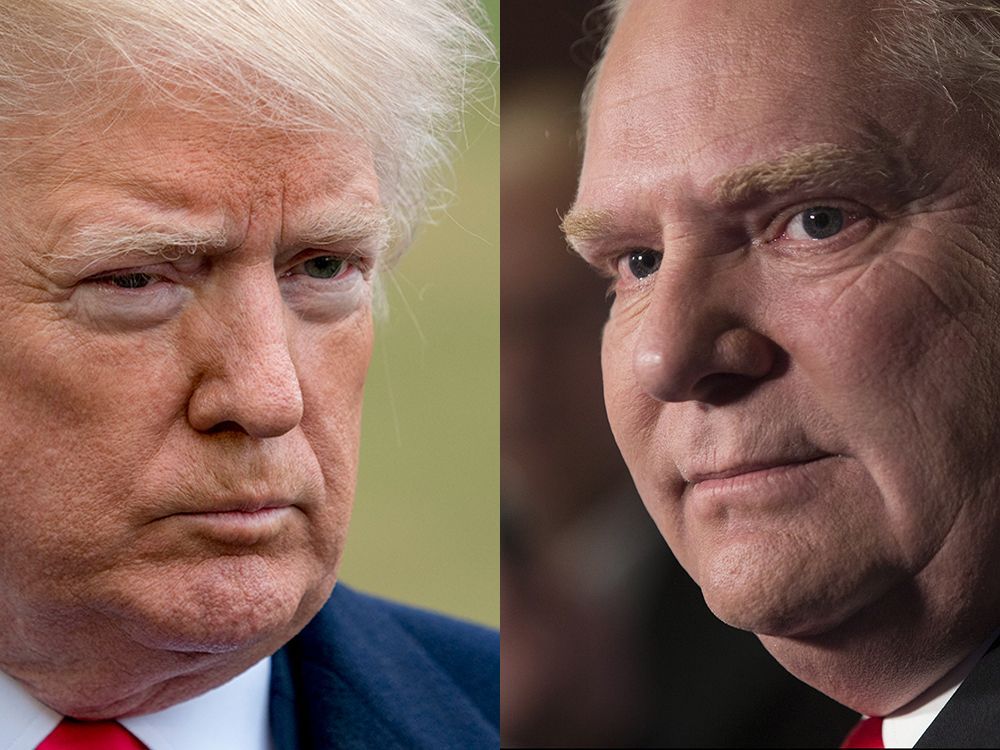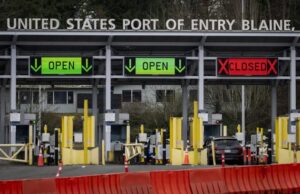
U.S. President Donald Trump’s trade war is set to unleash a new salvo on Tuesday.
Describing Tuesday as “Liberation Day,” Trump’s single-handed war on U.S. imports has so far caused turmoil across financial markets, and increasing discussions of how Canada — and the world — can excise the United States from their individual economies.
Speaking with CNBC’s Andrew Ross Sorkin Tuesday morning, Ontario Premier Doug Ford maintained the tariffs will hurt Americans as much as their trading partners.
“It’s going to hurt American jobs, it’s going to hurt investments, we’ve seen the markets tumble, I’m sure it’s going to start tumbling again today, because people don’t want uncertainty,” he said. “President Trump is attacking his number one ally, their number one customer.”
Describing Tuesday instead as “Termination Day,” Ford said numerous Americans will find themselves out of work, thanks to Trump’s trade war.
Ford said that Canada’s prepared to launch an additional $65 billion in retaliatory tariffs on Tuesday, something he doesn’t want to do.
“It’s just going to hurt both countries, and it’s going to hurt American workers,” Ford said.
White House Press Secretary Karoline Leavitt said on Tuesday that Trump is set to right “decades of unfair trade practices” he claims have “ripped off” the U.S.
But causing almost as much worry as the tariffs is the uncertainty and unpredictability of Trump, whose messaging has been unclear and often contradictory.
Despite promises of blanket — and exemption-free — 25% tariffs targeting North America’s auto industry, conversations between U.S. Commerce Secretary Howard Lutnick last week suggested completed vehicles built with more than half US-sourced parts would be free of tariffs.
Experts warn Trump’s tariffs will cripple, rather than improve, the U.S. auto industry, which currently imports roughly half of the vehicles purchased by American consumers.
Art Wheaton, director of the School of Industrial and Labour Relations at Cornell University, told the Toronto Sun this week that American auto workers should brace for job losses, coupled with increased vehicle prices and a potential disruption of the industry.
“It’s going to be a lot of pain in the U.S. and very likely Canada, as well,” he said.
Despite markets tumbling and scores of pundits warning of chaos, the White House insists their trade war is having a positive impact on the U.S. economy — leading to more domestic production and more jobs.
But Wheaton said those benefits would happen far outside the timescale of the current Trump administration.
“There’s no chance it’s going to have the effect that he wants while he’s still president,” Wheaton said.
“Even if tomorrow General Motors says, ‘Okay, we’re going to move that plant from Oshawa and put it somewhere in the U.S.,’ you’ve got to buy the land, you’ve got to built the product. It won’t be done in the timeframe that he wants.”
Such moves require significant investment and planning, he said, and won’t happen by the time Trump leaves office in four years.
“It is going to work, the President has a team of brilliant advisors who have been studying the issue for decades,” Leavitt insisted on Tuesday.
President Trump is expected to make his announcement at 4 p.m. Eastern.







